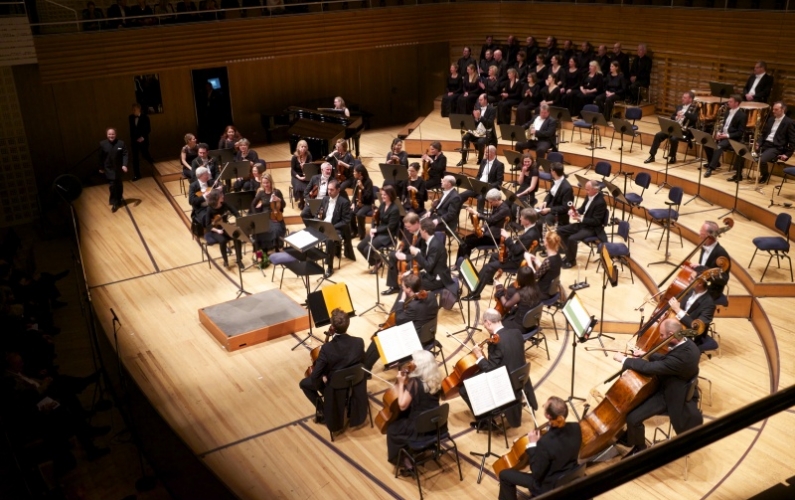
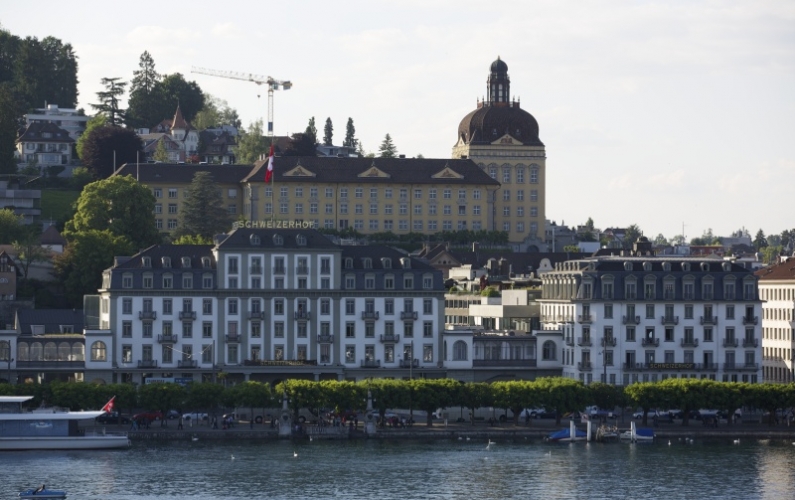

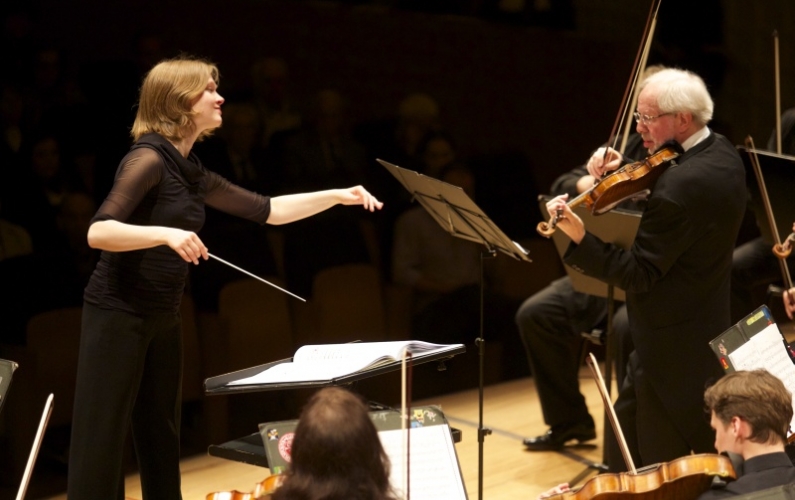
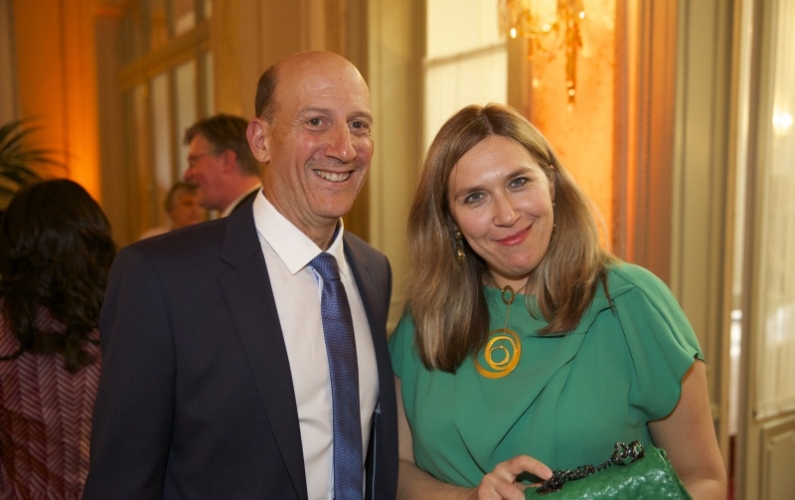
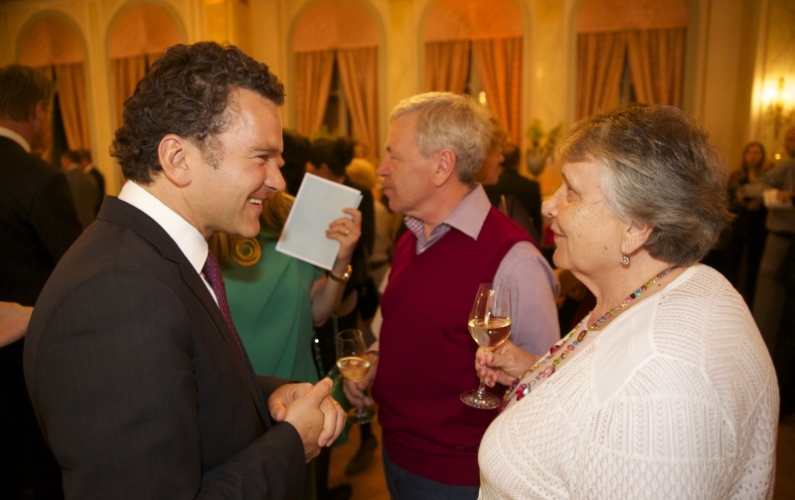
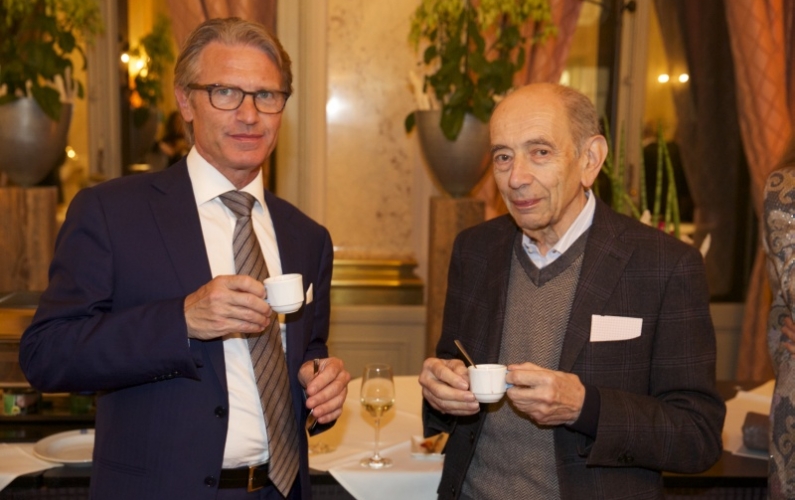
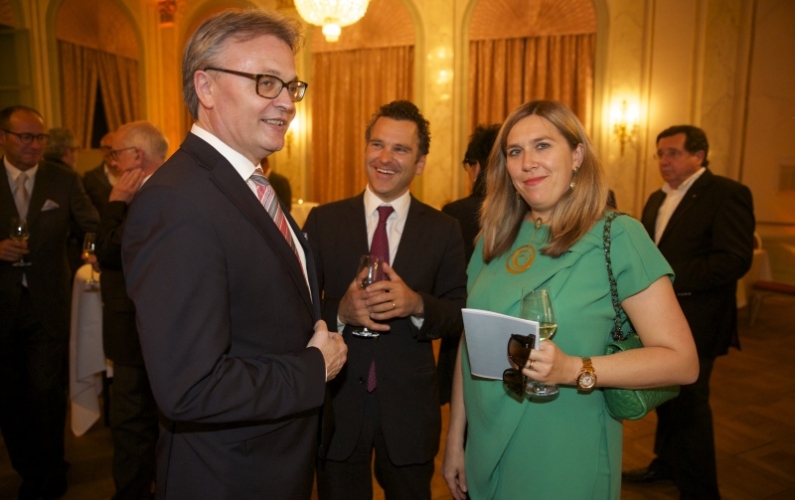
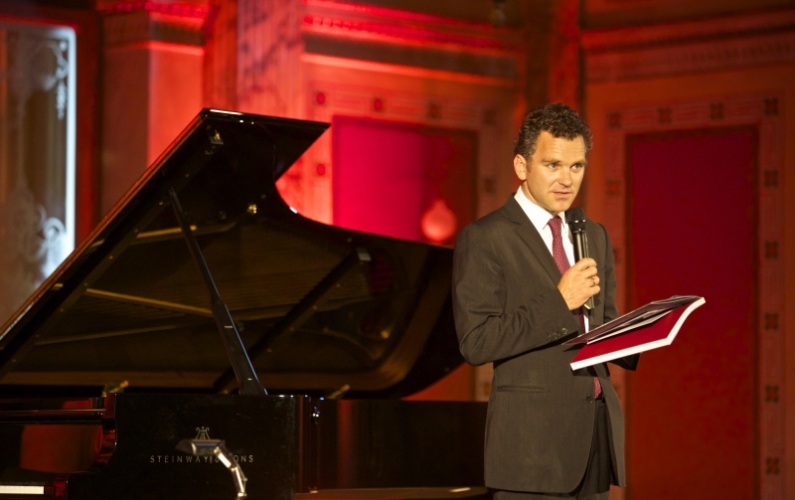
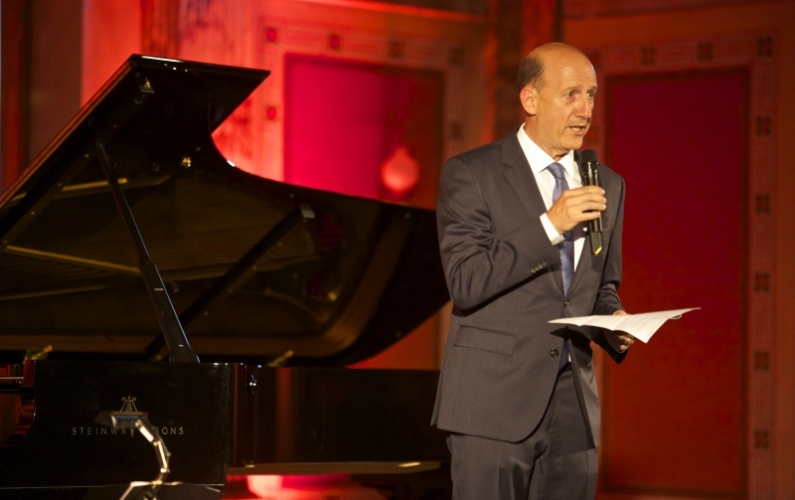
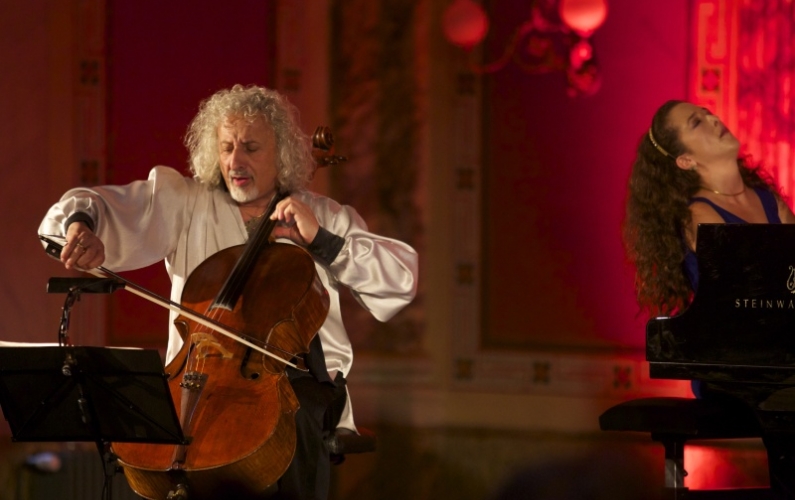
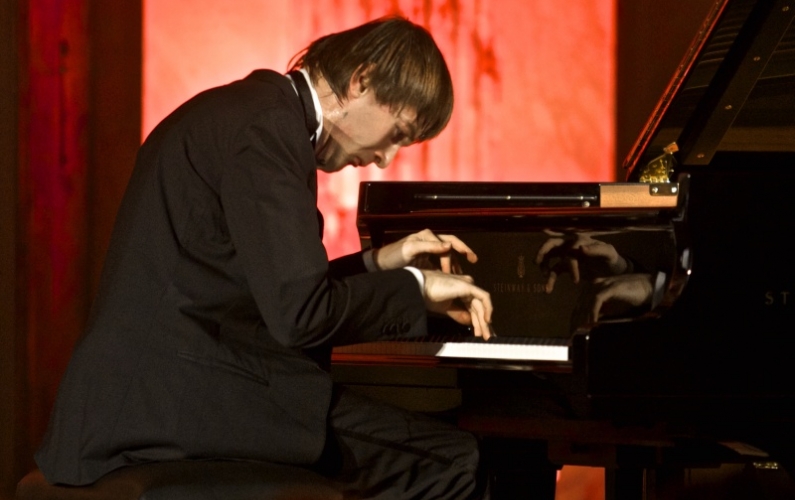
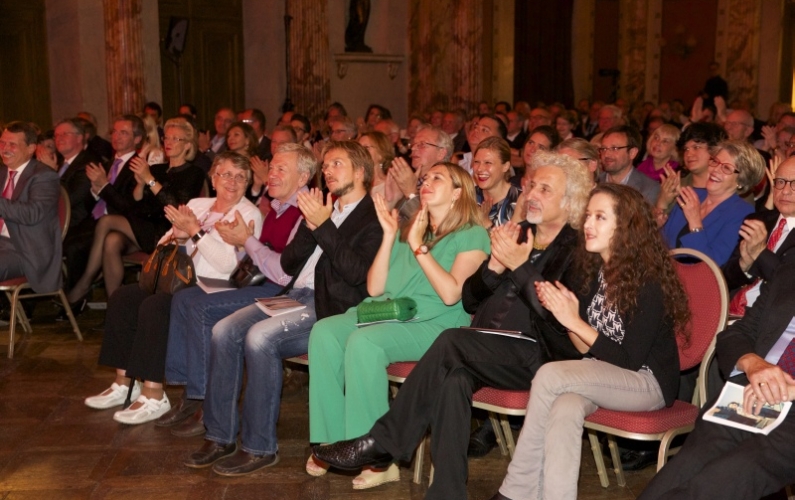
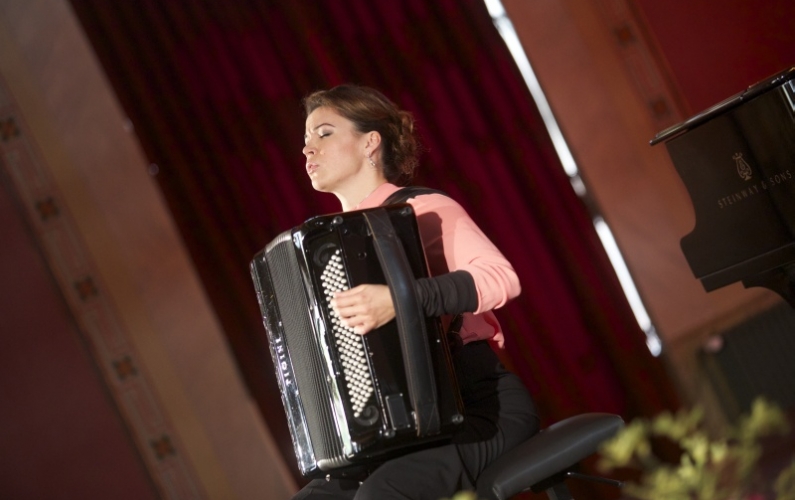
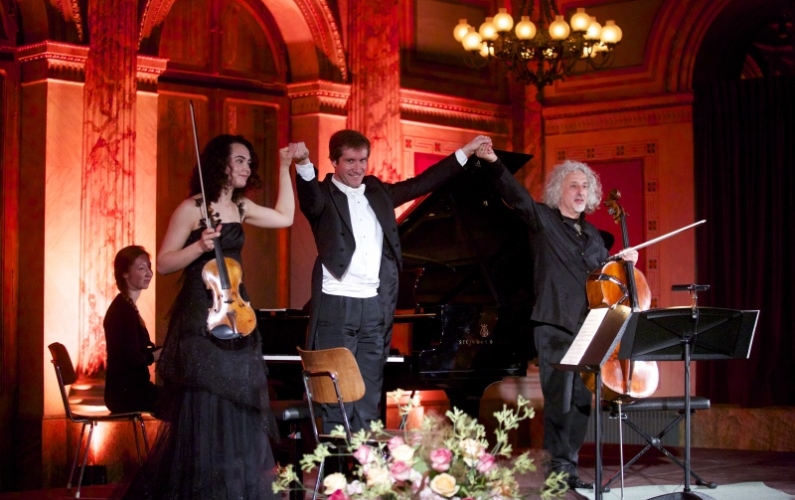
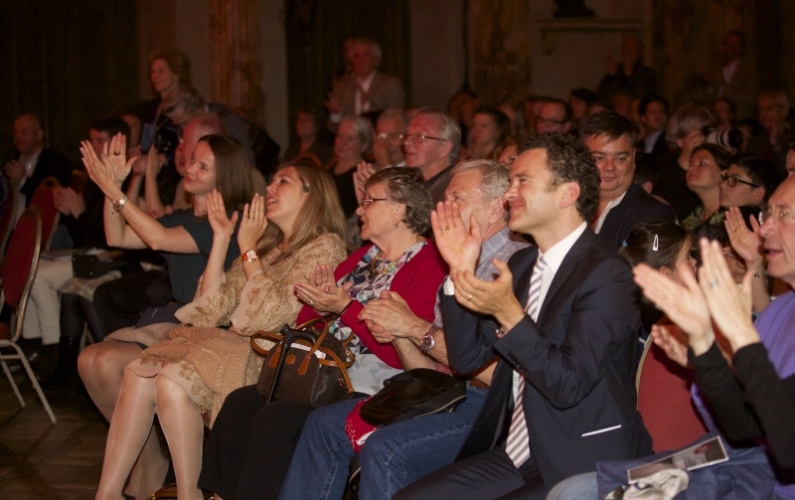
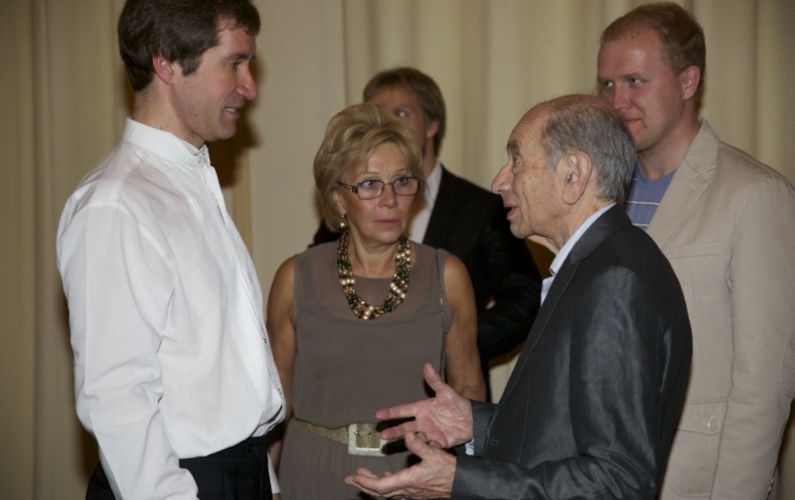
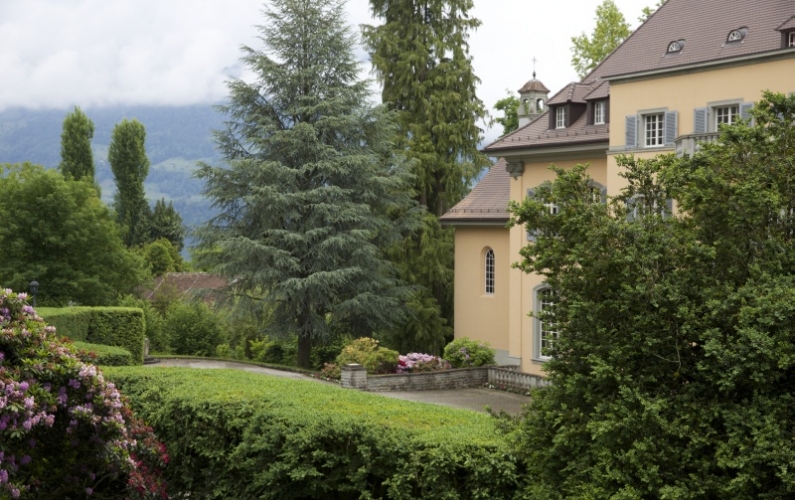
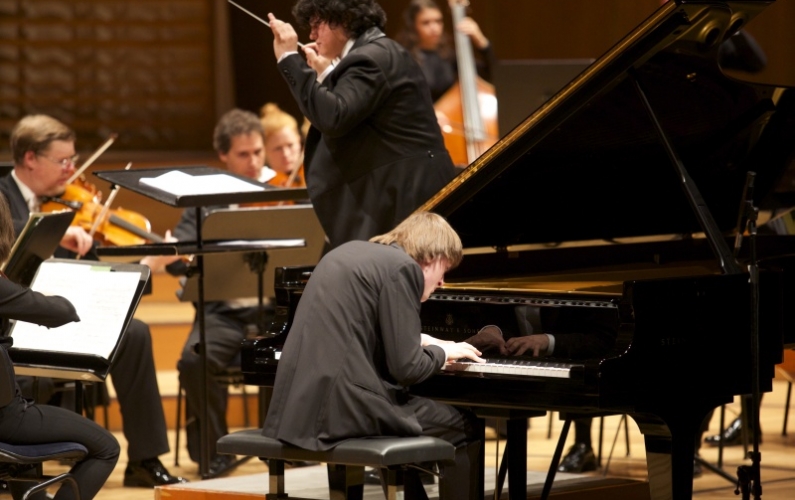
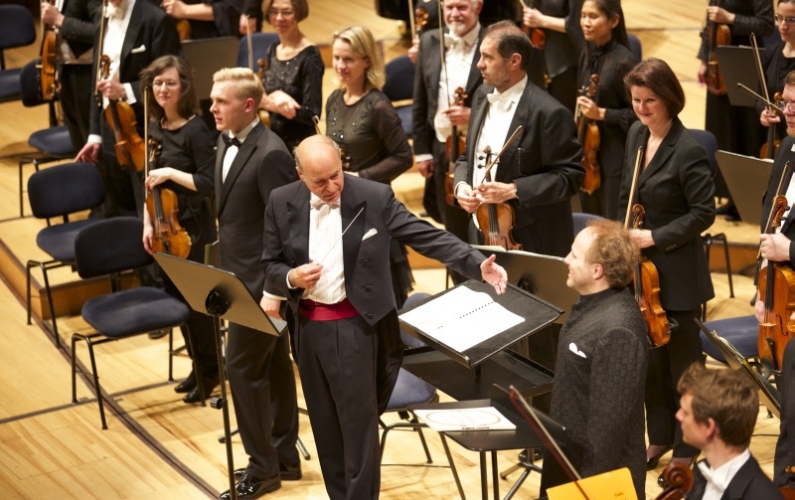
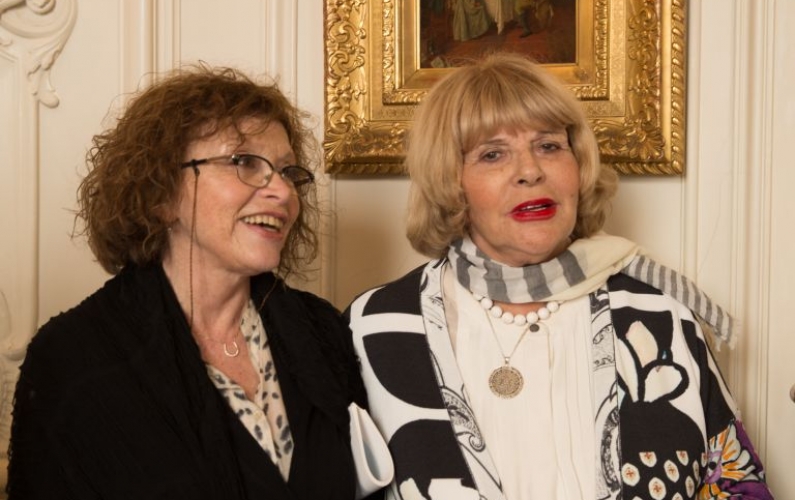
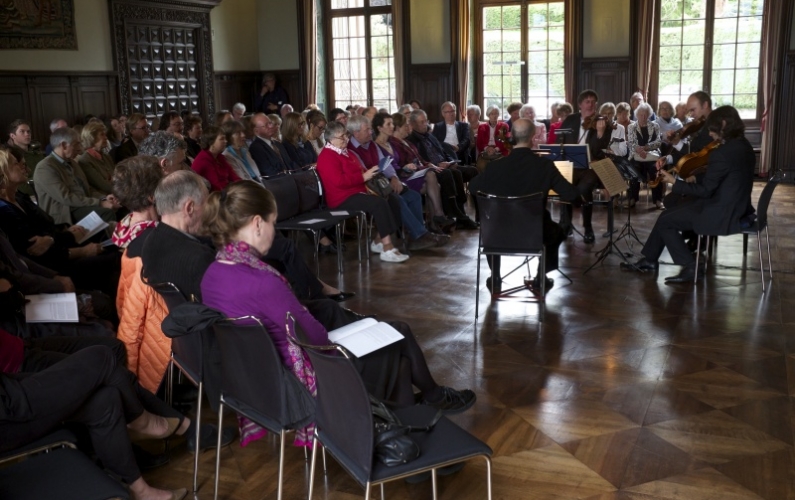
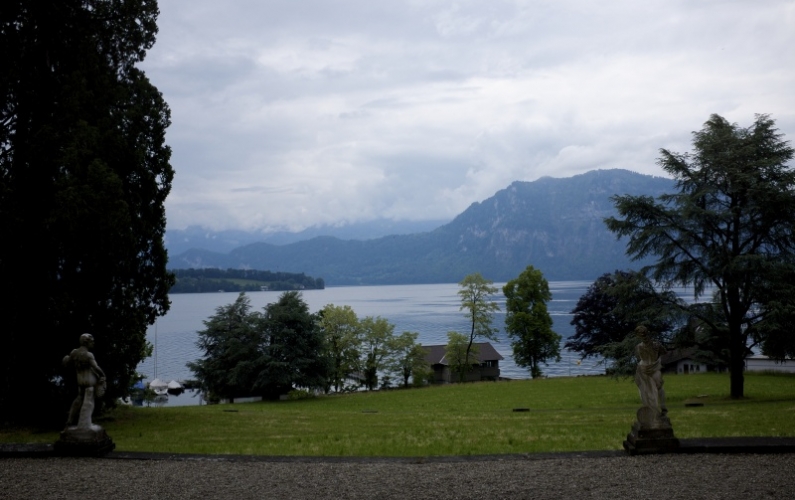
For the third consecutive year, the AVC Charity Foundation was principal sponsor and creative partner of the Enchanted Lake — Days of Russian Music in Lucerne Festival.
Lucerne, one of the great European medieval cities, with its unique architecture, is a major Swiss venue for international cultural events, attracting visitors from all over the world to its many festivals and concerts.
An enchanting city, surrounded by mountains, with pure air and a calm and peaceful daily rhythm of life, Lucerne lies 400m. above sea level on the shores of the Lake of Four Cantons, within whose waters are reflected the majestic Alps: ‘What is left to wish for when beauty and poetry surround you on all sides?’ — exclaimed Leo Tolstoy writing about Lucerne on one of his sojourns in his well-loved city.
Lucerne’s magical landscape and settings have inspired a number of famous Russian composers. It is not by chance that Numa Bischof Ullmann, artistic director of the Enchanted Lake planned this musical celebration to converge two national cultures — Russian and Swiss.
The Enchanted Lake brings together well-known and well-loved musicians with the young and aspiring of both cultures, over several days.
Youth plus experience could well characterize the Festival’s credo.
In 2014, a new generation of artists joined the great Mischa Maisky, Gidon Kremer, Kun Woo Paik and Nikolai Lugansky. They included Alena Baeva, Olga Scheps, Ksenija Sidorova and the already celebrated young pianist, Daniil Trifonov, winner of the XIV International Tchaikovsky Competition. Trifonov gave a number of outstanding concerts at one of the Festival’s main venues, the Schweizerhof Hotel. These included a brilliant interpretation of Tchaikovsky’s Six Pieces for Piano, Opus 19, before turning to an exquisite rendition of Sergei Rachmaninov’s Variations on a Theme of Chopin, Opus 22. The highlight of the evening was provided by the legendary Latvian cellist Mischa Maisky with his pianist daughter Lily Maisky, playing duo transcriptions of Rachmaninov’s Romances Opus 38. Mischa Maisky’s cello truly took on a human voice!
Music from the Russian soul pervades every Enchanted Lake Festival. After all, when he stayed at the Villa Senar on the edge of the Lake, Rachmaninov found the inspiration to create some of his musical masterpieces. And these days it would difficult to imagine the Festival without Nikolai Lugansky, Rachmaninov’s most devoted interpreter. At the Schweizerhof venue, Lugansky gave a magical rendition of Rachmaninov’s 13 Preludes, Op. 32 together with Prokofiev’s Sonata No. 4 Op. 29. Lugansky’s playing epitomizes internal focus, depth of thought, clear and perfect phraseology. On the same evening, he gave a magisterial interpretation of early Rachmaninov, the Elegiac Trio, in an ensemble with Alena Baeva on violin and Mischa Maisky, cello. This was the first time the three had played together, delighting everyone with their coordinated versatility. They were hardly able to leave the stage, such was the audience’s appreciation of their rare talents!
Another musical hero at the festival but from a more recent era, was Mieczyslaw Weinberg (1919-1996), a Soviet composer of Polish-Jewish origin. Weinberg left more than twenty symphonies, seven operas, chamber works and music for iconic movies and cartoons. According to one reviewer, he ranks as ‘the third great [modern] Soviet composer, along with Prokofiev and Shostakovich.’ Although infrequently played in Russia, his works are relatively well known in the West. In 2010, his opera The Passenger was featured among his music at the Bregenz Festival, and also in London. In an interview with Nasha Gazeta.сh, the first Swiss online newspaper in Russian, Numa Bischof Ullmann expressed his pleasure that Weinburg’s work had been adopted so enthusiastically. He cited especially the Belgian Danel Quartet, who have recorded all Weinberg’s chamber works, and violinist Gidon Kremer who over the last five years has been actively promoting Weinberg’s music. He said how glad he was that these musicians had taken part this year in the Festival.
Dedicated to the composer and attended by his daughter Victoria, the Danel Quartet played Weinberg’s Third String Quartet Op. 14 at a St. Charles Hall, Meggen midday concert. Joined by pianist Olga Scheps, they then gave us his Piano Quintet Op. 18. This talented young pianist emigrated as a child from Russia to Germany, where she has enjoyed a terrific performing career. In her solo performance, Olga included Prokofiev’s Obsession diabolique, Op. 4 and Rachmaninov’s later work, his Variations on a Theme of Corelli.
In anticipation of a concert performance of Prokofiev’s Overture on Hebrew Themes Op. 34, a symposium on Jewish influences on Russian music was attended by musicologists DavId Fanning from the UK, Michelle Assay, France, Lev Ginzberg, Russia, and concert-master Marc Danel. Moderator Jonathan Levy spoke about the creative connections between Weinberg and Shostakovich, both as friends and as fellow musicians.
On that same evening at the Concert Hall of the Culture & Convention Centre, the Kremerata Baltica Chamber Orchestra, conducted by Mirga Gražinytė-Tyla from Lithuania played Weinberg’s Fourth Chamber Symphony for solo clarinet, percussion and strings. Gidon Kremer, founder-director of the Kremerata appeared on stage only twice: to play in the Swiss premiere of Midnight in Riga by contemporary Latvian composer Arturs Maskats and then to offer an interpretation of Leonard Bernstein’s Serenade, after Plato’s Symposium, for violin, strings, harp and percussion.
The brilliant Latvian accordionist Ksenija Sidorova was surely the great discovery of the 2014 Festival: her stunning appearance, elegance and confidence, combined with her mastery of her instrument. Critics agree unanimously that Ksenija has revived wonderfully the traditional expressiveness and color of the accordion. This was evident in one of her concerts, where she played transcriptions of Tchaikovsky, Rachmaninov and Schnittke, as well as original works written for the accordion by Ukrainian composer Artem Nyzhnyk, including the premier of his Samsara. In her rendition of Schnittke’s Gogol Suite Ksenija demonstrated the fantastic versatility of her instrument. No less remarkable was her duo with Swiss actor Robert Unger-Buchler. Together, they put on a special musical and literary interpretation of Leo Tolstoy’s Lucerne.
The Lucerne Symphony Orchestra is of course a home orchestra at the Enchanted Lake. At its opening concert, this famous orchestra played under the direction of Aziz Shokhakimov, a young conductor from Uzbekistan, who then passed the baton to Swiss maestro, Matthias Bamert. Maestro Barnert conducted a concert version of Rimsky-Korsakov’s Mozart and Salieri, based on the Pushkin tragedy. Russian tenor Sergei Radchenko sang the role of Mozart and the Polish baritone Daniel Kotlinski sang Salieri.
The Enchanted Lake completed its extensive program on June 1 with an evening of Russian cinema, in a retrospective of movies featuring the music of Mieczyslaw Weinberg, for example, Winnie the Pooh, followed by Mikhail Kalatozov’s The Cranes Are Flying (winner of the 1958 Palme d’Or) starring Tatiana Samoilova and Alexei Batalov.
The next magic meeting with Russian artists on the shores of Lake Lucerne will attract even more of the world’s interest and attention. In any case, the organizers of this cultural music Festival firmly believe it!
Victor Alexandrov, the AVC Charity Foundation music reviewer
<p>Annual Festival of Classical Music in Lucerne</p>
Lucerne, Switzerland
